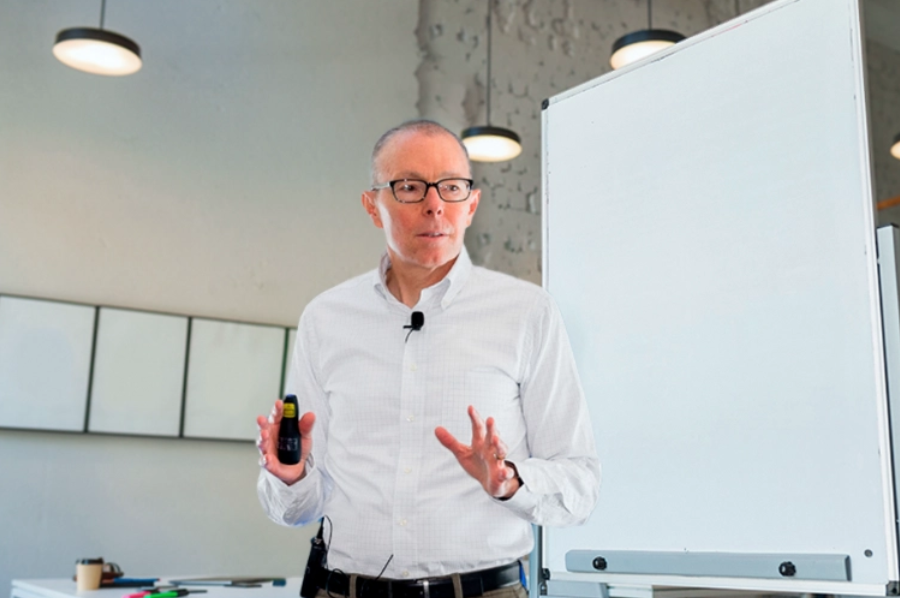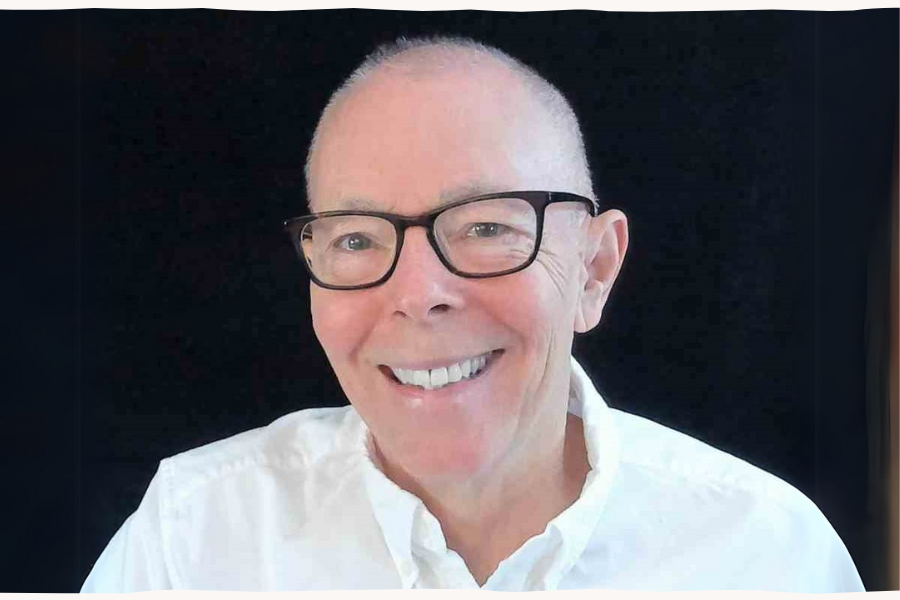Love to Learn Spotlight: Will Thalheimer

We often assume that the true luminaries in L&D were destined from childhood to conquer the L&D world.
But Will Thalheimer, the star of this edition of our Love to Learn Spotlight, didn’t exactly take the straight path into learning and development, and lived many lives before landing in the learning space.

The winding road to workplace learning
Before finding his way into the field, Will worked in kitchens, knocked on doors (trying) to sell vacuum cleaners, supported troubled teenagers in mental health programmes, drove a van for adults with cognitive disabilities and led the occasional yoga class.
After finally enrolling at university and studying psychology, he ended up working at an insurance company, where he quickly discovered that staring at health claims all day wasn’t his calling. “I enjoyed it for four weeks. After that, it was terribly boring.”
An MBA followed, but again, no spark. Until he stumbled upon a course on instructional design. That, he says, did light the spark: “I loved it.” Eventually, an ad in Training Magazine for ‘the World Leaders in Business Simulation’ caught his eye (conveniently located just four blocks from his home).
He walked in uninvited, wearing his only suit (one his dad helped him buy), and talked his way into the job. “Nobody had ever walked in off the street. They told me to come back the next day – and then they hired me.”
That was the moment things started to fall into place. What followed was a career dedicated to bringing clarity, rigour and common sense to the world of workplace learning.
State-of-the-old-skool simulations
At Strategic Management Group (the simulation company), Will worked on building business and leadership simulations, using nothing but basic branching scenarios and 30-pound ‘portable’ computers with monochrome displays. “It was the latest technology at the time”.
The simulations were used in workshops where participants worked through scenarios and reviewed feedback based on business indicators like revenue or cost. The tech was bare-bones compared to today’s standards, but the experience was powerful. “It was amazing how engaged people were with just green text on a black screen.”

Foil Fail
Will once accidentally ruined a simulation with chocolate coins. Participants got so competitive to win the coins it completely derailed the learning.
Gap between learning science and practice
After earning a PhD in Educational Psychology, Human Learning and Cognition from Columbia University, Will returned to the company to lead their leadership development product line and noticed something odd: researchers and practitioners weren’t talking to each other. “There’s wisdom in both camps, but they were completely disconnected.” So he decided to become the intermediary: someone who could take complex research and make it practical.
So in 1998, he founded Work-Learning Research: a one-man consultancy focused on bridging that gap. He began conducting learning audits, benchmarking programmes against the science of learning and memory, and running workshops around the world. His approach: “Sit at the back of the classroom. Review the e-learning. Benchmark it to the research. Then show what’s aligned and what’s not.”
Over time, his attention shifted more and more towards evaluation; especially the flaws in how the industry measures learning.

Will’s secret arsenal
Will collects props in the name of better learning metaphors. On his desk? A movie scene clacker, magnifying glass, rock concert microphone, dog miniatures and a plastic sword.
Rethinking smile sheets
One of Will’s biggest frustrations? The continued over reliance on smile sheets and end-of-course evaluations. “We measured right at the end of learning, when everything is top of mind – that’s not a good way to measure.”
According to Will, multiple meta-analyses show that these surveys have almost no correlation with actual learning outcomes. It was just 0.09. “That’s virtually nothing.”
To help practitioners create surveys with meaningful outcomes, Will developed performance-focused learner surveys — a smarter way of collecting feedback that asks more relevant, diagnostic questions:
Did learners truly understand the material?
Are they motivated to apply it?
Do they have the support to use what they’ve learned on the job?
Will’s advice? “Whatever you do, don’t rely only on learner surveys. They’re not enough. But if you’re going to use them, at least do them right.”
Meet LTEM
To help learning professionals move beyond the smile sheets, Will created the Learning-Transfer Evaluation Model (LTEM). Rather than just measuring attendance or satisfaction, LTEM encourages organisations to track outcomes that actually matter, from decision-making and task performance to long-term impact on the job.
“It’s the only evaluation model I know of with learning science baked in,” Will says. “It nudges us toward smarter, more realistic decisions about what we measure and why.”
“LTEM is the only evaluation model I know with learning science baked in.”
And he is also quick to point out that you don’t need to get it all perfect. “You’re not going to build the ideal evaluation from day one. Just ask yourself: what’s one step we can take to do this better?”
.png&w=3840&q=100)
Beam me up, LTEM!
According to Will, the LTEM model combines the logic and rigour of Spock with the drive and empathy of Captain Kirk. “It’s got learning science baked in, but also a push to act.”
Learn from Will
Will didn’t set out to become a thought leader, he just couldn’t ignore the gap between what research says and what actually happens in L&D. So, that gap became his mission.
Today, Will is one of the most respected voices in evidence-based practice, on a mission to help the L&D world let go of tradition-for-tradition’s-sake, and focus instead on what truly works. With humour, honesty and a lot of evidence, he helps learning professionals rethink what they measure, how they teach and why it matters.
It’s exactly this mix of research, realism and refreshingly straight talk that he’ll bring to the stage at the upcoming Love to Learn Experience, where he’ll take a deep dive into learning evaluation and the latest version of LTEM, and offer practical tools to help you measure what really matters.
And don’t worry, there won’t be any chocolate coins.